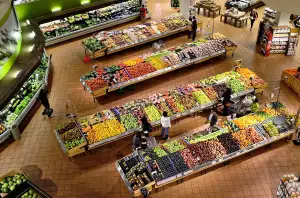Burger King Shutting Down Stores: Impact on Home Dining Trends

Burger King, a prominent fast-food chain known for its flame-grilled burgers, is making headlines with the announcement of store closures across the globe. The decision to shut down stores has sent shockwaves through the industry and raised concerns among loyal customers. With a history dating back to 1954, Burger King has been a staple in many communities, making this development all the more significant. Stay tuned as we delve into the reasons behind this strategic shift and its potential implications for the fast-food landscape.
Reasons behind the decision to close stores
Burger King's decision to close stores is primarily driven by the shift in consumer preferences towards healthier dining options and the rise of delivery services. The fast-food industry has seen a decline in foot traffic as more people opt for home-cooked meals or healthier alternatives. Additionally, increasing operational costs and competition from other fast-food chains have also contributed to the closures. These factors have led Burger King to reevaluate its store locations and streamline its operations to remain competitive in the evolving market landscape.
Impact on employees and local communities
The closure of Burger King stores will have a significant impact on employees and local communities. Many employees will face job losses, leading to financial instability and uncertainty. Local communities will also feel the effects as these closures can result in vacant storefronts, decreased foot traffic, and potential economic downturns. Small businesses that relied on Burger King customers may also suffer as a result of these closures. The loss of jobs and economic activity in these communities can have lasting repercussions on the overall well-being of the area.
Response from Burger King officials
Burger King officials have expressed their regret over the decision to close stores, citing the need to adapt to changing consumer preferences and economic challenges. In a statement, the company emphasized its commitment to supporting affected employees through severance packages and job placement assistance. Additionally, Burger King is exploring innovative strategies to enhance its digital presence and delivery services to meet evolving customer demands in the competitive fast-food market.
Future plans for the company
Future plans for Burger King involve a strategic shift towards enhancing their digital presence and increasing focus on delivery and drive-thru services. The company aims to adapt to changing consumer preferences by investing in technology to improve customer experience and streamline operations. Additionally, Burger King plans to expand its international footprint in emerging markets to drive growth and remain competitive in the evolving fast-food industry landscape.
The closure of Burger King stores signifies a shift in consumer preferences towards healthier and more sustainable dining options. As more people prioritize health and environmental concerns, fast-food chains may need to adapt their menus and practices to meet these changing demands. This trend could lead to increased competition among fast-food companies to offer healthier choices and reduce their carbon footprint. The industry may see a rise in plant-based options and initiatives to support local communities as a response to evolving consumer expectations. Fast-food giants like McDonald's and Wendy's may also need to reconsider their strategies to stay relevant in an increasingly health-conscious market.
Published: 19. 04. 2024
Category: Home



